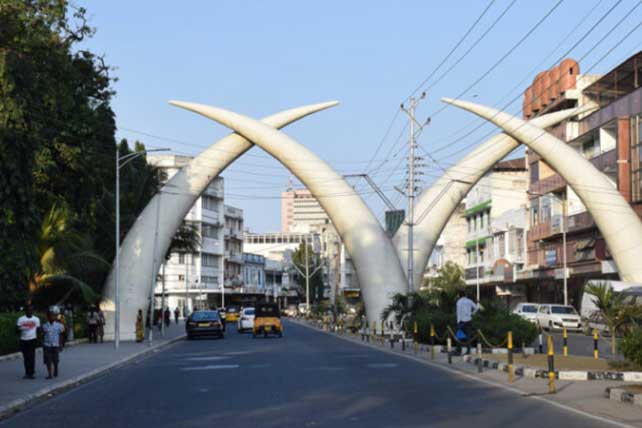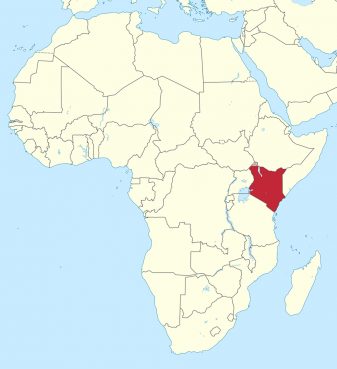“It is punishment, and he will not be preaching the gospel as we know it,” said the Rev. Joseph Njakai, an Anglican priest in Nanyuki, in central Kenya. “While it’s good that people will be educated about the law, the church should endeavor to address some of these issues.”
Kenya, red, located in eastern Africa. (Map courtesy of Creative Commons)
The Sexual Offenses Act was passed in 2006 in an attempt to tame increasing cases of sexual violence. It names 14 sexual crimes, including gang rape, trafficking for sexual exploitation and child pornography.
This week’s court ruling has served to draw attention to recent indecent acts involving clerics in Kenya. In mid-March, another Catholic priest, the Rev. James Kamau, appeared before a court in Thika, charged with violating an 11-year-old girl.
In December, a pastor in Nairobi who had violated two minors after luring them into his house after church, was sentenced to 60 years in prison.
Early this year, churches in Kenya expressed alarm over increased cases of sexual abuse and the killing of women for their gender, or femicide.
According to statistics released by Femicide Count Kenya, an organization that monitors the killings as reported in local news, there were 58 deaths labeled as femicides between January and October 2022. In 2023, the organization recorded at least 152 killings, the highest in the past five years. In January 2024, there were at least 14 cases.
Africa Data Hub, an organization that provides health data to newsrooms, said that from 2016 to 2024, 500 women in Kenya were victims of femicide.
“Silence on these acts is violence. Everyone must speak up to tame this pandemic,” the Rev. Ezekiel Lesmore, a Nigerian Lutheran pastor who is director of programs at the All Africa Conference of Churches, told church leaders, gender activists and ordinary Christians at an interfaith roundtable on femicide in February.
This article originally appeared here.


